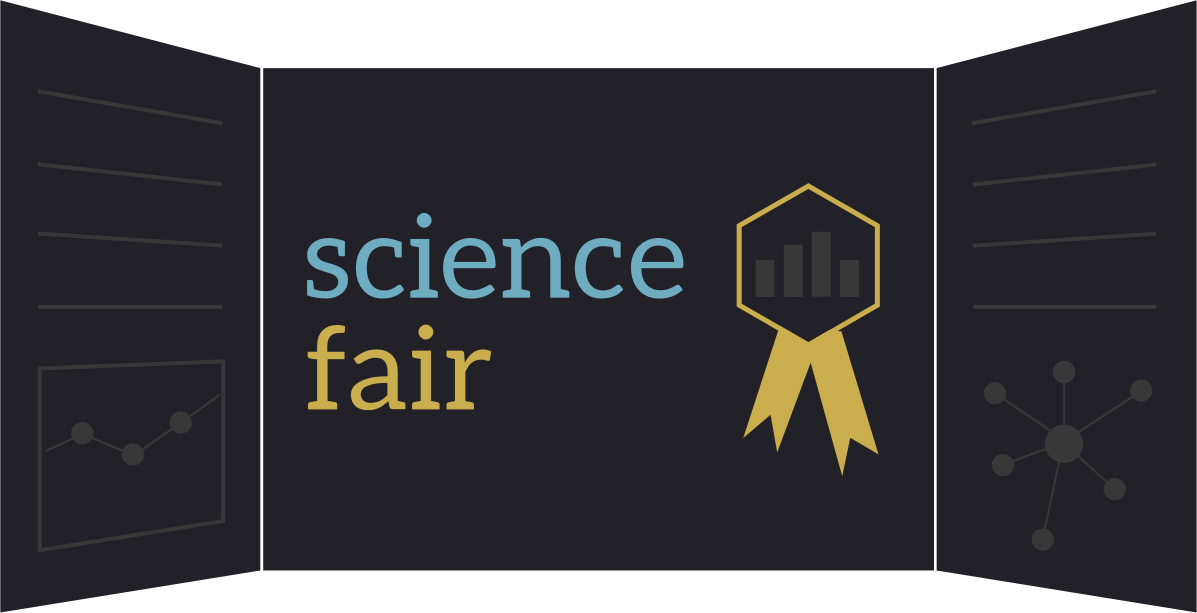The open source p2p desktop science library that puts users in control.
We've released 🎈 v1.0 🎈! But we're just getting started. Check out the roadmap to see where we're headed.
How we access, read and reuse scientific literature is largely controlled by a few vast publishing organisations. Many wonderful innovations are being explored outside those organisations, but they are rarely integrated into the platforms where people actually access science.
We have a vision of a different, better, future for science. A future that's more fair, inclusive and open. A future where people can explore and innovate and where users control and customise their experience.
ScienceFair aims to help pave the road to that future. The main thing that sets it apart? Freedom from centralised control.
We're creating a desktop experience for discovering, tracking, collecting and reading scientific articles that:
- is completely free from external control (e.g. by publishers or platforms)
- helps decentralise the distribution and storage of the scholarly literature
- allows the user to customise their experience
- promotes and integrates open data and metadata
- helps grow an ecosystem of open source tools around scientific literature
You can download installers or bundled apps for Windows, Mac and Linux from the releases page.
If you find a bug, please report it in the issue tracker.
Some of the things that ScienceFair does differently:
We use the beautiful Lens reader to render JATS XML to a reading experience optimised for scientific papers.
Instant search of your local collection and remote datasources, only downloading the data requested.
A ScienceFair datasource can be a journal, a curated community collection, a personal reading list... anything you like.
v1.0 comes with the eLife journal by default, and more will follow very soon.
Datasources are append-only feeds of JATS XML articles, signed with public-key encryption and distributed peer-to-peer (using dat). This means:
- downloads come from the nearest, fastest sources
- it doesn't matter if the original source goes offline
- only the original creator can add new content
- anyone can create a datasource (tools to make this easy coming soon)
- your local collection of articles is ready for data mining
And importantly, datasources you create are private unless you decide to share them, and nobody can ever take a datasource offline.
Basic bibliometrics are built-in in v1.0.
Full analysis and data-mining tools, alt-metrics and enriched annotation will be coming soon.
ScienceFair also follows a few simple design principles that we feel are missing from the ecosystem:
- we keep the interface minimal and clear
- incremental discovery is the way
- be beautiful
This project uses node v8, ideally the latest version. It also uses the two-package.json structure (what??).
To get a local copy working, clone this repo, then run
npm installto install dev dependenciescd app && npm installto install regular dependenciescd .. && npm run devto start in development mode
-
v1.0proof of concept:- incorporate major new technologies (dat/hyperdrive, lens reader, instant search)
- core user experience and design
- development, packaging and distribution architecture in place
1.0.xreleases will be bug fixes and non-breaking improvements
-
v1.1focus on datasources:- more, and bigger, datasources available by default
- tools for creating and managing datasources
- interface for creating and securely sharing p2p collections within the app
- a platform and interface for discovering and managing datasources
-
v1.2focus on enrichment:- altmetrics, updates (e.g. retractions), etc. displayed in context in realtime
- advanced bibliometrics and data-mining tools
- annotation and commenting, within the app and drawn from existing sources
-
v2.0focus on user customisation:- a package system, allowing customising and extending key aspects of the experience
- tools and documentation for making new packages
- a platform and interface for discovering and managing packages












